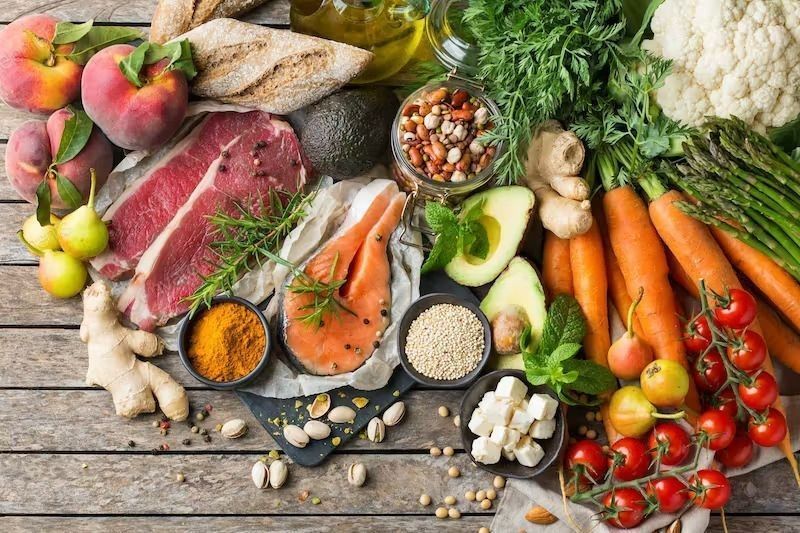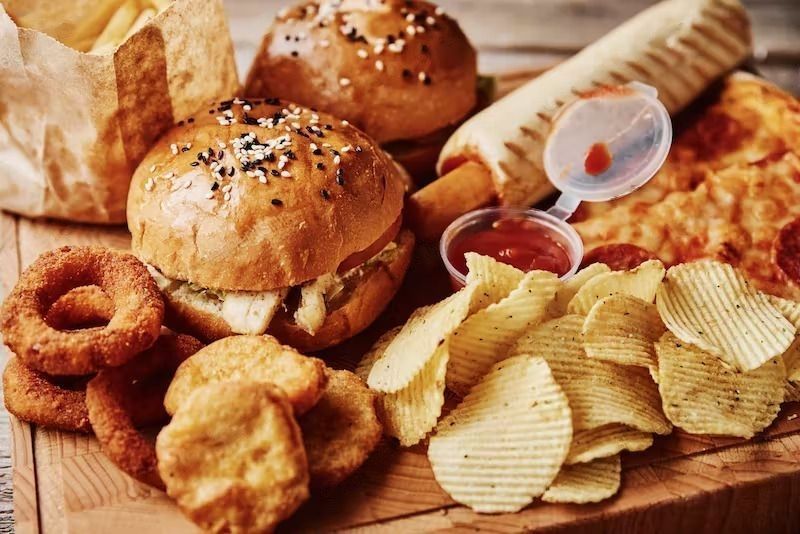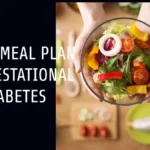
Pregnancy is an exciting time for expectant mothers, but it can also bring many questions and concerns, especially when it comes to nutrition. What to eat when pregnant to support the growth and development of your baby? What should you avoid? With so much information available, it can be overwhelming to know where to start.
This article aims to provide clear and concise information on the types of foods that are recommended for pregnant women and those that should be avoided, as well as the reasons why. By understanding the importance of nutrition during pregnancy, expectant mothers can make informed choices about their diet and ensure the best possible outcome for themselves and their baby.
Principles of a Healthy Diet During Pregnancy and Managing Caloric Intake
Basically, the principles of a healthy diet during pregnancy stay the same as before: eat plenty of fruits and vegetables, lean protein and whole grains, don’t consume too much caffeine and foods rich in fat and sugar. However, you will need a few extra nutrients in your diet (see below).
As for the quantities, the common belief that you have to “eat for two” is a myth. In fact, you don’t need any extra calories for the first six months of pregnancy. Your body becomes more efficient during pregnancy, and makes better use of the food you consume. This means you’ll only need about 200 extra calories per day for the last three months. Listen to your body and eat only when you’re hungry, as your appetite might fluctuate throughout the pregnancy:
In the first few weeks, your appetite may decrease away dramatically, especially if you have morning sickness.
Your appetite might slightly increase during the middle part of your pregnancy, or stay the same as before you got pregnant.
Your appetite will probably increase towards the end of your pregnancy. Eat small, frequent meals to avoid heartburn. Avoid dieting during pregnancy, even if you don’t like the way your body looks when you look in the mirror. You’ll have plenty of time to get back into shape later, but in the present, your growing baby needs nutrients, and some diets can leave you low on important vitamins and minerals such as folic acid and iron. If you are overweight, you can avoid foods rich in fat and sugar and exercise a bit. Consult a doctor before changing your diet or increasing your physical activity.
Related: Can A Postnatal Massage Help You To Lose Weight?
What To Eat When Pregnant?

Foods
Healthy eating during pregnancy should include the five main food groups:
- Fruits and vegetables: At least five portions each day.
- Starchy food: Bread, pasta, rice (the wholegrain versions are recommended) and potatoes.
- Foods rich in protein: Lean meat and chicken, fish, eggs etc.
- Dairy products: Milk, cheese and yogurt (preferably without sugar). Calcium is important, and you will need twice as much each day during your pregnancy.
- Nuts and seeds: Sunflower seeds, almonds, or walnuts.
Vitamin Supplements

During your pregnancy, you should take:
- Folic acid: You may need folic acid (400 micrograms a day for the first 12 weeks and three months before pregnancy) to help prevent neural tube defects such as spina bifida.
- Iron: You may need it later on in your pregnancy.
- Multivitamins: You can take multivitaminsthat contain both supplements and many others.
Related: 10 Healthy Snacks for Pregnancy
What Not To Eat When Pregnant?

- First of all, it is better to avoid alcohol during pregnancy.
- Raw and undercooked meat and eggs. They may contain harmful bacteria.
- Raw fresh seafood (including sushi).
- Fish that contain unsafe levels of naturally occurring mercury, such as swordfish, shark, and marlin. As tuna contains some mercury too, so it’s best you don’t eat more than four medium-sized cans per week.
- Moldy and blue-veined cheeses such as brie, camembert, and stilton. Those kinds of cheese could contain listeria, the bacteria that could harm your baby.
- Avoid eating liver and pate, because they may contain large amounts of retinol (a form of vitamin A).
- Aspartame, an artificial sweetener often in soft drinks, chewing gum, breakfast cereals etc., is safe for use during pregnancy and breastfeeding. However, you should limit consumption to a moderate level and avoid aspartame during pregnancyaltogether if you have PKU (a rare metabolic disorder), a rare liver disease, or if you have high levels of phenylalanine (a component of aspartame that may not metabolize correctly) in your blood.
- You don’t have to give up your morning cup of coffee, but it’s recommended you cut back on caffeine during pregnancy nonetheless. 200 mg of caffeine a day is enough, which means two to three mugs of instant coffee/ four cups of tea a day.
It may seem like a long list of don’ts. However, there’s still plenty of wholesome, delicious foods you can enjoy during your pregnancy while providing your future baby with all the nutrients he/she needs.
How Many Extra Calories Does Your Body Really Need?
Eating a healthy, balanced diet will help your baby get the nutrients he or she needs and grow at a healthy rate. But how many extra calories does your body really need?
Unlike what many well-wishing friends and relatives may tell you, it’s hardly necessary to ”eat for two.” In fact, you don’t even need to gain weight in your first trimester. Due to morning sickness, you may start gaining weight a bit later, and it’s completely normal. According to the NAM (National Academy of Medicine), the average pregnant woman needs only 300-340 extra calories a day in her second trimester, and 450 extra calories daily in her third trimester. This will help her gain the right amount of weight during pregnancy.
So how much Weight should you Gain?
The recommended weight gain during pregnancy varies based on the pre-pregnancy body mass index (BMI) of the woman. Here are the general guidelines from the Institute of Medicine (IOM):
Average Weight
A woman who was average weight (BMI 18.5 to 24.9) before pregnancy should gain 25 to 35 pounds during pregnancy.
Underweight
An underweight woman (BMI less than 18.5) should gain 28 to 40 pounds, and an overweight woman may need to gain only 15 to 25 pounds.
Expecting Twins
If you are expecting twins, you should gain 35 to 45 pounds during your pregnancy. It’s especially important to gain the right amount of weight when you’re expecting twins because your weight affects theirs. And because twins are often born before the due date, a higher birth weight is important for their health. If you’re pregnant with twins, you may need between 3,000 and 3,500 calories a day, and should gain 37 to 54 pounds if you started at a healthy weight, 31 to 50 pounds if you were overweight, and 25 to 42 pounds if you were obese.
However, according to research, at least half of women are gaining more or less than they “should.” Most underweight women will gain within the guidelines, but some women of healthy weight may exceed the advised amounts and a majority of overweight or obese women will likely gain too much.
Overweight
If a women is overweight (BMI between 25 to 29.9) when she gets pregnant, the recommended weight gain range is between 15 to 25 pounds (7 to 11.5 kg).
Obese
If a woman is severely obese (BMI greater than 30) when she gets pregnant, the recommended weight gain range is between 11 to 20 pounds. Her doctor may want her to lose weight. Such women should only lose weight under medical care. But in most cases, you should not diet during pregnancy and better wait until after delivery to start losing weight.
Importance of Healthy Weight Gain During Pregnancy and Potential Risks
Whether or not you’ve struggled with your weight in the past, it may be difficult accepting that you’re actually supposed to gain weight now. It’s normal to feel slightly worried, but remember, that some weight gain is important for a healthy pregnancy and a healthy baby, and that you’ll shed those extra pounds after delivery. Eat a healthy diet while you’re pregnant, and ask your doctor or trainer to help you set up an exercise program that suits you.
If you gain more than the recommended amount of weight during pregnancy, your baby may be too large at birth, which can cause labor complications, such as a higher risk for having a cesarean delivery or a premature birth. You might also retain too much weight after pregnancy and have a higher weight in your future pregnancies.
The risks for women who gain too much weight during pregnancy, though, are less than the risks for women who are already overweight when they conceive. Women who start pregnancy overweight are at higher risk for complications, including preeclampsia and gestational diabetes.
In addition, women who are overweight or obese before pregnancy tend to have trouble breastfeeding, and children whose mothers who start pregnancy overweight are more likely to become overweight themselves.
Losing Weight After Birth
Much of your extra weight will be gone soon after you deliver your baby. Women usually lose half of their pregnancy weight gain in the first six weeks after giving birth. The baby accounts for about 7.5 pounds and the amniotic fluid, placenta, and extra body fluids and blood add up to another 8 to 12 pounds as follows:
- Amniotic fluid: 2-3 pounds
- Placenta: 2-3 pounds
- Breast tissue: 2-3 pounds
- Stored fat for delivery and breastfeeding: 5-9 pounds
- Larger uterus: 2-5 pounds
- Blood supply: 4 pounds
- Total: 25-35 pounds
Don’t start cutting back on calories right after delivery, though. Beyond that, remember that if it took nine months to put on the weight, it can take just as long for it to come off. Besides, being the mother of a newborn requires lots of energy – for breastfeeding, for example- and that means giving your body all the nutrients it needs. Be patient and give your body a chance to do its work, and you may be surprised at how much weight you lose naturally, especially if you’re breastfeeding.
If you still have trouble losing weight, consider consulting a dietitian and start training regularly to help you lose weight – but not too much or too fast.
Conclusion
In conclusion, it is essential for pregnant women to consume a well-balanced and nutritious diet to support the growth and development of the baby. Eating a variety of nutrient-dense foods such as fruits and vegetables, whole grains, lean proteins, dairy or dairy alternatives, and nuts and seeds is recommended. It is also important to avoid certain foods such as raw or undercooked meats, fish with high levels of mercury and limit the intake of caffeine and alcohol. It is always best to consult with your doctor or a dietitian for personalized recommendations. By following these guidelines on what to eat when pregnant? expectant mothers can ensure they and their babies receive the necessary nutrients for a healthy pregnancy.
Related: Should You Drink Alcohol during Pregnancy?
Frequently Asked Questions (FAQs)
Can I eat Sushi while Pregnant?
It is generally recommended to avoid raw or undercooked fish during pregnancy due to the risk of foodborne illnesses. Opt for cooked sushi or vegetarian options instead.
Is it safe to consume Caffeine during Pregnancy?
While moderate caffeine intake is generally considered safe, it is advisable to limit your caffeine intake to 200 milligrams per day. Be mindful of hidden sources of caffeine in chocolate, certain teas, and sodas.
Should I take any Supplements during Pregnancy?
Prenatal supplements, including folic acid, iron, and calcium, are often recommended to meet your increased nutritional needs. Consult with your healthcare provider to determine which supplements are suitable for you.
Are Herbal Teas safe to drink during Pregnancy?
While some herbal teas are safe, others may have potential risks. Avoid herbal teas that contain ingredients like chamomile, licorice root, or raspberry leaf, and consult your healthcare provider for guidance.
Can I eat Spicy Foods during Pregnancy?
Spicy foods are generally safe to consume during pregnancy. However, they may cause indigestion or heartburn for some individuals. Listen to your body and adjust your spice levels accordingly.
Is it necessary to avoid all Cheeses during Pregnancy?
Not all cheeses pose a risk during pregnancy. Soft cheeses made from unpasteurized milk, such as brie, feta, and blue cheese, should be avoided due to the potential for listeria contamination. Opt for pasteurized cheeses insteadd.






